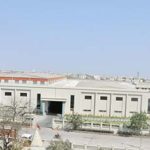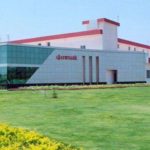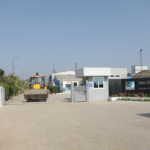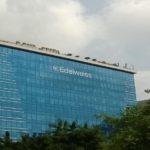Are you Know about Portfolio Management System (PMS) investment for an NRIs in Suva, Fiji? So, Lets discuss here about the topic, One of the world’s wealthiest people resides in India. With the growing Indian economy, these wealthy people are increasingly willing to invest in Indian equities. There are many advisory firms, broking firms, and banks that offer products and services that specifically cater to the need of the Non-Resident Indian (NRI) community. Out of these production services, Portfolio Management Service (PMS) is one of them. There are many Non-Resident Indians (NRIs) in Suva, Fiji who are completely confused between Portfolio Management Services (PMS) and Mutual Funds (MF).
The confusion between the two is natural because there are many investment options, so it is very natural to get confused about the right investment option for the individual investor. For instance, there are multiple ways to invest in equities. Like one can make a direct investment in stocks, or one can invest in stocks through Portfolio Management Services (PMS), Mutual Funds (MF), etc.
The reason behind the confusion is that there are certain similarities between the investments through Mutual Funds (MF) and Portfolio Management Services (PMS). For example, Mutual Funds (MF)and Portfolio Management Services (PMS) both include investment through active fund management by professional fund managers. However, irrespective of some similarities, Mutual Funds (MF)and Portfolio Management Services (PMS) are two different things. The article below will discuss all the essential segments of the Portfolio Management Scheme (PMS), and it will also differentiate between Mutual Funds (MF) and Portfolio Management Services (PMS) to provide you with better insights into the scheme.
Who is a Non-Resident Indian (NRIs) from Suva, Fiji in India?
As mentioned in the Foreign Exchange Management Act (FEMA) 1999, a Non-Resident Indian (NRIs) from Suva, Fiji in India is a person residing outside India for employment, business, education, or vocation in the circumstances. If an individual intends to stay out of India indefinitely, he will be considered a Non-Resident Indian (NRI). Besides this, a person who stays in India for less than 182 days during a specific financial year will also be considered a Non-Resident Indian (NRIs) from Suva, Fiji in India.
NRIs in Fiji
The great chief Lutunasobasoba, according to Fijian tradition, led his people across the oceans to the new territory of Fiji. Most experts think that humans entered the Pacific via the Malay Peninsula from Southeast Asia. Most researchers believe that people arrived in the Pacific via Southeast Asia’s Malay Peninsula. Long before Europeans came, Melanesians and Polynesians merged to develop a highly advanced society.
When the earliest Melanesians arrived 3,500 years ago, they brought a vast variety of food plants, the pig, and a kind of pottery known as Lapita clay with them. People who are skilled in navigation and canoe construction, as well as horticulturists, are commonly linked to that pottery.
Capital: Suva
Monetary unit: Fiji dollar
Languages: Fijian
Currency Exchange Rate:- 1 rs = 0.028 Fijian Dollar
Total area: 7,054 sq mi
Fiji is a South Pacific archipelago of islands. It borders the Koro Sea and is roughly 1,300 miles (2,100 kilometres) north of Auckland, New Zealand. The archipelago consists of 300 islands and 540 islets that span a 1,000,000-square-mile region (3,000,000 square km). Only around a hundred of the 300 islands are populated. Suva, the capital, situated on Viti Levu (“Great Fiji”), the largest island, on the southeast coast.
Land of Fiji
Fiji’s geologic history is complicated. The Fiji islands are mostly the result of volcanic activity, sedimentary deposits, and coral formations, and are built on a submerged substrate of ancient formations. Viti Levu is around 4,000 square miles (10,000 square kilometres) in size and makes up more than half of Fiji’s land area. A rugged separating range runs north to south, with numerous peaks exceeding 3,000 feet (900 metres), including Tomanivi (previously Mount Victoria), Fiji’s highest point at 4,344 feet (1,324 metres). The Rewa, Navua, Sigatoka (Singatoka), and Ba (Mba) river systems all have their headwaters in the central mountain range.
Economy of Fiji
Fiji’s economy is centred on tourism and agriculture, with the latter containing a significant subsistence industry dominated by indigenous Fijians. Subsistence farmers augment their income by growing copra, cocoa, kava, taro (also known as dalo), pineapples, cassava (manioc), bananas, or fishing. The commercial sector is mostly dependent on garment manufacturing and sugarcane production, both of which are primarily carried out by small-scale Indian farmers.
The economy also has a substantial service and light-industrial component that serves tiny neighbouring nations as well as Fiji, with businesses ranging from boatbuilding (particularly fishing boats and pleasure ships) to brewing and paint manufacturing.
Cultural life
Fiji’s multiculturalism contributes to the rich cultural heritage of the country. Many features of traditional Fijian culture have been preserved, including elaborate investiture, marriage, and other rites conducted for high-ranking chiefs. These festivities serve as a focal point for traditional crafts such as masi, or tapa fabric, which is manufactured from the bark of the paper mulberry; mat weaving; wood carving; and boat manufacturing. Yanggona (kava, prepared from the root of Piper methysticum) is consumed by Fijians and Indians alike, not just as part of major events but also in everyday life.
Fiji’s original settlers brought with them a broad variety of food plants, the pig, and a form of pottery known as Lapita ware when they arrived from the Melanesia islands at least 3,500 years ago. That pottery is usually connected with individuals who were skilled at navigation and canoe construction, as well as horticulturists. The Lapita culture was transferred from Fiji to Tonga and Samoa, where the first Polynesian cultures emerged.
Why should choose Portfolio Management Services (PMS) as an NRIs in Suva, Fiji?
Portfolio Management Services (PMS) are designed to make investment portfolios in fixed income, cash, stocks, debt, structured products, and other individual securities as an NRIs in Suva, Fiji. All these services can be tailored and customized to meet investor-specific investment objectives. By investing in Portfolio Management Services (PMS), you will be able to own individual securities, whereas, in Mutual Funds (MF), you can only earn the units of the fund. Portfolio Management Services (PMS) are flexible and allow portfolio customization to address the investor’s personal preferences and financial goals.
What is a Portfolio Management Services (PMS) for NRIs in Suva, Fiji?
In simple words, a Portfolio Management Service (PMS) is a customized solution for creating wealth. A Portfolio Management Service (PMS) is for an individual with a high net worth and who wants to invest in equity, debt, and other securities through a designated fund manager. In portfolio management service, the investor’s investment objectives are kept in mind while making any investment as an NRIs in Suva, Fiji.
Many investors desire personalized investment solutions and portfolio construction. Besides this, many individuals in Portfolio Management Services (PMS) demand easy access to the fund manager, mainly focusing on long-term wealth creation. So, the people who want personalized investment solutions and long-term wealth creation opt for Portfolio Management Services (PMS). For Portfolio Management Services (PMS), you need to have a general minimum corpus to invest under Portfolio Management Services (PMS) schemes offered by various entities registered in India.
Difference between Portfolio Management Services (PMS) vs. Mutual Funds (MF) for an NRIs in Suva, Fiji
 As mentioned above, Portfolio Management Services (PMS) and Mutual Funds (MF) have some striking similarities and differences. To get a better idea of Portfolio Management Services (PMS), you need to understand the difference between Portfolio Management Services (PMS) and Mutual Funds (MF). Following are the key differences between Mutual Funds and Portfolio Management Services (PMS) for NRIs in Suva, Fiji: –
As mentioned above, Portfolio Management Services (PMS) and Mutual Funds (MF) have some striking similarities and differences. To get a better idea of Portfolio Management Services (PMS), you need to understand the difference between Portfolio Management Services (PMS) and Mutual Funds (MF). Following are the key differences between Mutual Funds and Portfolio Management Services (PMS) for NRIs in Suva, Fiji: –
Different objectives
The key difference between the two is their objectives. In Portfolio Management Services (PMS), the professional service is offered with the purpose to meet investor-specific investment objectives. It simply means that in Portfolio Management Services (PMS), the investment is made according to the investor’s investment objectives. While on the other hand, the objective of Mutual Funds (MF) is to meet fund-stated investment objectives. Mutual funds (MF) are structured to meet the fund-stated investment objectives, not the investor-specific investment objectives.
Minimum investment in Portfolio Management Services (PMS) and Mutual Funds (MF) as an NRIs in Suva, Fiji
The minimum investment required in a Portfolio Management Service (PMS) is rupees 50 lakhs. On the other hand, a person can start investing in a Mutual Fund (MF) with a minimum of 500 rupees investment. The minimum investment in Portfolio Management Services (PMS) is very high compared to Mutual funds (MF). According to the Securities Exchange Board of India (SEBI) regulation, the minimum threshold required for investing in Portfolio Management Services (PMS) is rupees 50 lakhs. The individual can invest by way of stock, cash, or a combination of both. Whereas investments in Mutual Fund (MF) shares are quite low.
Different portfolio construction
The portfolio construction in Portfolio Management Service (PMS) is around 15 to 25 stocks, while the portfolio construction in Mutual Funds (MF) is more than 50 stocks. Most Portfolio Management Services (PMS) are focused portfolios; that’s why they are constructed with 15 to 25 stocks. In contrast, Mutual Funds (MF) are diversified portfolios with more than 50 stocks.
Difference in ownership
The Portfolio Management Service (PMS) ownership rests with the investors, while in Mutual Funds (MF), the mutual fund trustees are the owners. The stock brokers are the middleman who invests on behalf of the investors; they work on a contractual basis. While the Mutual Funds (MF) investors only allocate the money, they are not the sole owners. Ownership in Mutual Funds (MF) completely relies on mutual fund trustees.
Customization available for NRIs in Suva, Fiji
The Portfolio Management Service (PMS) allows the investor to customize because the investment is made to meet the investor’s objectives. That’s why in Portfolio Management Services (PMS), customization is possible while, on the other hand, in Mutual Funds (MF), customization is not possible. Mutual Funds (MF) are structured to meet fund-stated investment objectives, so they do not allow any customization. Besides this, the ownership of the Portfolio Management Services(PMS) is on investors, while in the case of Mutual Funds (MF), mutual fund trustees are the sole owners. Portfolio Management Services (PMS) allow customization to meet the specific requirements of the investors, while there is no customization in Mutual Funds (MF).
Weightage stock of portfolio
The portfolio stock weightage in Portfolio Management Services (PMS) is quite flexible, while in Mutual funds (MF), the portfolio stock weightage is limited to 10% only. The portfolio stock weightage in Portfolio Management Services (PMS) is flexible and can locate any weightage to single stocks. Meanwhile, Mutual Funds (MF) are restricted and allow the maximum allocation to a single stock of 10%. The maximum allocation capacity to single stock is not more than 10% for stock, while on the other hand, the PMS is quite flexible.
Reach to investors
The Portfolio Management Services (PMS) reach is limited and restricted to a limited number of investors. While in the case of Mutual Funds (MF), the reach is unrestricted and includes a wide number of investors.
Ideal investor for both
The investment solutions provided by Portfolio Management Services (PMS) are to serve a niche segment of clients. In comparison, Mutual Funds (MF) investors are wide mass retail investors. You should remember that the Non-Resident Indians (NRIs) with a high investment budget exceeding 50 lakhs can prefer, Portfolio Management Services (PMS), which will ensure high returns to them with more flexible investments. On the other hand, for Non-Resident Indians (NRIs) with a restricted budget (500 rupees investment), Mutual Funds (MF) are the best option.
Applicable charges
Lastly, the charges for Portfolio Management Services (PMS) for NRIs in Suva, Fiji are two to three percent annually, while the charges for Mutual Funds (MF) are up to 2.25% only.
How can invest in Portfolio Management Services (PMS) Schemes in India as NRIs from Suva, Fiji?
An NRI from Suva, Fiji can invest in Portfolio Management Services (PMS) under the Securities and Exchange Board of India (SEBI) regulation in India. Though Non-Resident Indians are allowed to invest in Indian markets, certain restrictions are imposed on the investment made by them. The Securities and Exchange Board of India (SEBI) has laid some eligibility criteria for the Non-Resident Indians that they need to qualify for investing in Portfolio Management Services (PMS). The criteria established by the Securities and Exchange Board of India (SEBI) are as follows: –
Different criteria are there depending upon the source of the funds. The source of the funds can be self-investing or backed by angel investors. For Non-Resident Indians, the minimum corpus of rupees 20 crores is required if they are self-investing. If they have angel investors backing them, they need to have a minimum corpus of 10 crore rupees. The angel investor, sponsor, or manager must bear a continuous interest for five crore rupees or less than 2.5% on the corpus invested at the initial stage.
Besides this, the Non-Resident Indian is required to have a DEMAT or a trading account if he wants to invest in the Indian market.
Lastly, it is crucial to have a Non-Resident External (NRE) account or a Non-Resident Ordinary (NRO) account to make any investment or transaction in India. Non-Resident External (NRE) account is an account where the Non-Resident Indian (NRI) can park their foreign earnings. A Non-Resident Ordinary (NRO) account is an account where The NRI can park the profits made from investments in India. While a Non-Resident External (NRE) account is tax-free, a Non-Resident Ordinary (NRO) account is completely subjected to tax deduction at the source.
Portfolio Management Service Taxation for Non-Resident Indian from Suva, Fiji in India
The brokerage firm pays the net profit and deducts the applicable tax at source on behalf of Non-Resident Indian from Suva, Fiji investors in Portfolio Management Services (PMS) in India. Portfolio managers are the individuals who handle your account and help you with filing your taxes. They will provide you with tax statements at the end of the year, and according to that, you are required to pay taxes. They are also responsible for keeping the entire process of investments transparent, and they are not authorized to sell or invest anywhere without your knowledge. If the capital gain in India is below 250,000 rupees, the NRI is eligible to file a tax return to claim a refund for the taxes that are deducted at the source.
Benefits of investing through Portfolio Management Services (PMS) for Non-Resident Indians in Suva, Fiji
There are many benefits for a Non-Resident Indian of investing through Portfolio Management Services (PMS) in Suva, Fiji; some of them are as follows: –
Transparency for an NRIs in Suva, Fiji
The Portfolio Management Services (PMS) are transparent in terms of expense and ratios and one can access them 24/7. The PMS allows 24/7 online access to investors. Besides this, PMS investors directly own portfolio stocks in their DP, and every transaction is intimated to the investor. There is no chance of fraud because the transparency level in Portfolio Management Services (PMS) is quite high.
Managed by professionals for an NRIs in Suva, Fiji
Some qualified and experienced portfolio managers manage the Portfolio Management Services (PMS). These portfolio managers are backed by a strong research team who manages portfolios on behalf of the clients. It simply means that the portfolio managers will manage the clients’ portfolios and make investments on their behalf after taking their consent. The portfolio managers should be resident Indians. These portfolio managers are professionals and experts in managing portfolios.
Customized investment advice for an NRIs in Suva, Fiji
The professional services served by Portfolio Management Services (PMS) are customized and meet the investment objectives of various investors. The task of the portfolio manager is to build and manage the portfolio according to the strategy selected and the timing of the investment. The services provided by the portfolio manager are customized and tailor-made according to the investor’s financial goals, objectives, and requirements.
Taxation benefits for an NRIs in Suva, Fiji
 The tax applicable on the investment portfolio held in a PMS is always treated at an individual investor level. The taxation will be applicable depending on the holding tenure of each investment. According to the holding tenure of investment, the long-term capital gains tax and short-term capital gains tax will be applicable.
The tax applicable on the investment portfolio held in a PMS is always treated at an individual investor level. The taxation will be applicable depending on the holding tenure of each investment. According to the holding tenure of investment, the long-term capital gains tax and short-term capital gains tax will be applicable.
Benefits of superior returns for an NRIs in Suva, Fiji
Portfolio Management Services (PMS) need high investment, but they are more aggressive and have the potential to generate superior returns. If you choose the correct portfolio manager with meaningful exposure to such companies and hold on as long as they deliver growth by adding value and superior returns.
Things to remember while investing in Portfolio Management Services (PMS) as an NRIs in Suva, Fiji
There are certain things that a Non-Resident Indians from Suva, Fiji should keep in mind while making any investment in portfolio management services in India.
Any Indian national or resident can easily access the Portfolio Management Services (PMS). If the non-resident Indian desires to invest in a Portfolio Management Services (PMS) scheme, they must open a Portfolio Investment Scheme (PINS) account. According to the guidelines of the Reserve Bank of India (RBI), a non-resident must have a portfolio investment scheme account if they want to invest in portfolio management services.
Being an NRI, you must appoint a stockbroker who should be an Indian resident. The stock broker will buy and sell shares on behalf of the NRI. Besides this, the NRI must open a separate Non-Resident Indian PMS account, and he also needs to sign an agreement with the PMS service provider. Here you need to know that all the documentation process will be typically handled by the stock broker or the person who is providing you service on behalf of the Non-Resident Indian.
The Non-Resident Indian is empowered to transfer any existing investment to the PMS service provider. Once the PMS contract is expired, the NRI investor can repatriate the net investment post-tax if the investments were made through the Non-Resident Indian (NRI) Portfolio Investments Scheme (PIS) account.
There are some other do’s and don’ts that apply to Non-Resident Indians (NRIs) under the PIS scheme of the reserve bank of India. All the do’s and don’ts apply to the investment made in single stocks and apply to the procedure for the investment made under the repatriation and non-reparation basis and short selling of shares.
One can fix the charges for the PMS or can, make it performance-based, or a combination of both. Whatever the settlement, it will be communicated to the Non-Resident Indian (NRI) investor and documented in the agreement between the stockbroker and the Non-Resident Indian (NRI). The Non-Resident Indian must pay other charges applicable for operating the Portfolio Investments Scheme (PIS) account, DEMAT maintenance charges, and brokerage charges for transactions.
The personalized customization of professional money management with easy access to the fund manager and flexibility in investment decisions making, all these things make the Portfolio Management Service (PMS) an attractive avenue for investments. But you must remember that all these services can be costly with no tax benefit for NRIs.
Conclusion to invest in Portfolio Management Services (PMS) Schemes as an NRIs in Suva, Fiji
India is a big democratic country with a growing economy that attracts many Non-Resident investors. Recently a lot of people have been willing to invest in Indian markets. Many people prefer Mutual Funds as they are among the safest investment options. A lot of people are not aware of Portfolio Management Services (PMS), and a majority of people get confused between Portfolio Management Services (PMS) and Mutual Funds (MF). Mutual Funds (MF) and Portfolio Management Services (PMS) are beneficial and can yield huge profits if you choose your ideal investment option. Mutual Funds (MF) are suitable for people who don’t have huge investments; meanwhile, Portfolio Management Services (PMS) support wealthy people who have high investments. After reading the article, you would have a clear difference between Mutual Funds (MF) and Portfolio Management Services (PMS) for an NRIs in Suva, Fiji.








































